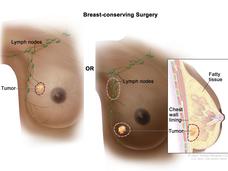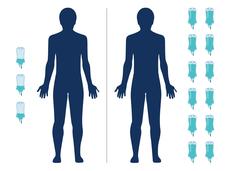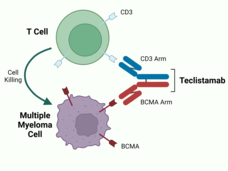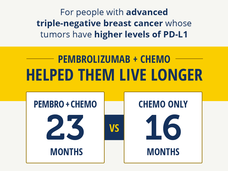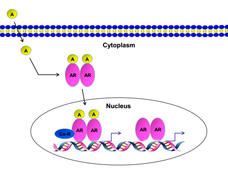Clinical Trial Results - Cancer Currents Blog
Reports on findings from cancer clinical trials, with commentary from leading researchers on how the trial results will affect patient care.
-
A Safer, Better Treatment Option for Some Younger Women with Breast Cancer
For younger women with advanced breast cancer, the combination of ribociclib (Kisqali) and hormone therapy was much better at shrinking metastatic tumors than standard chemotherapy treatments, results from an NCI-funded clinical trial show.
-
Shorter Course of Radiation Is Effective, Safe for Some with Early-Stage Breast Cancer
In a large clinical trial, a condensed course of radiation therapy was as effective and safe as a longer standard course for those with higher-risk early-stage breast cancer who had a lumpectomy. This shorter radiation course makes treatment less of a burden for patients.
-
Study in India Could Make Immunotherapy More Affordable Worldwide
A study in India has found that an ultra-low dose of the immunotherapy drug nivolumab (Opdivo) helped people with advanced head and neck cancer live longer. Because the dose is 6% of what’s typically used in the United States and Europe, it is potentially more affordable.
-
For People with Cancer, Are Steroids the Best Treatment for Breathing Problems?
Results from a large NCI-funded clinical trial show that steroids were no more effective than a placebo for treating breathing problems in people with advanced cancer. And people treated with steroids were more likely to have serious side effects.
-
Immunotherapy before Surgery Appears Effective for Some with Melanoma
For melanoma that can be treated with surgery, a few doses of pembrolizumab (Keytruda) beforehand looks to be a good choice. In a clinical trial, people who got the presurgical immunotherapy were much less likely to have their cancer come back than those who only received it after surgery.
-
Teclistamab Shows Promise for People with Heavily Pretreated Multiple Myeloma
In a small clinical trial, nearly 40% of people with multiple myeloma who were treated with the immunotherapy drug teclistamab (Tecvayli) had all signs of their cancer disappear. The trial participants had myeloma that did not respond to or came back after three or more prior treatments.
-
Study Confirms Dinutuximab Extends Life for Children with High-Risk Neuroblastoma
Researchers have confirmed that the immunotherapy drug dinutuximab (Unituxin) can help children with high-risk neuroblastoma live longer. The finding is based on a trial of nearly 1,200 children with the disease.
-
Pembrolizumab Improves Survival in Advanced Triple-Negative Breast Cancer
Adding the immunotherapy drug pembrolizumab (Keytruda) to chemotherapy can help some patients with advanced triple-negative breast cancer live longer. In the KEYNOTE-355 trial, overall survival improved among patients whose tumors had high levels of the PD-L1 protein.
-
Ifosfamide May Be Treatment of Choice for Some People with Ewing Sarcoma, Trial Shows
New findings from the first large, randomized clinical trial to compare chemotherapy regimens for relapsed or treatment-resistant Ewing sarcoma could help doctors and patients select treatments.
-
Enhertu Improves Survival for Metastatic “HER2-Low” Breast Cancer
People with metastatic breast cancer whose tumors had low levels of HER2 protein lived longer after treatment with trastuzumab deruxtecan (Enhertu) than those treated with standard chemotherapy, results of the DESTINY-Breast04 clinical trial show.
-
For Some Kids with Brain Cancer, Targeted Therapy Is Better than Chemo
The combination of dabrafenib (Tafinlar) and trametinib (Mekinist) shrank more brain tumors, kept the tumors at bay for longer, and caused fewer side effects than chemotherapy, trial results showed. The children all had glioma with a BRAF V600 mutation that could not be surgically removed or came back after surgery.
-
More Evidence that One HPV Vaccine Dose Protects against Cancer-Causing Infections
One dose of the HPV vaccine was highly effective in protecting young women against infection from high-risk HPV types, a study in Kenya found. A single dose would make HPV vaccines more accessible worldwide, reducing cervical cancer’s global burden.
-
For Early-Stage Lung Cancer, Nivolumab and Chemo before Surgery Proves Effective
Giving people with early-stage lung cancer the immunotherapy drug nivolumab (Opdivo) and chemotherapy before surgery can substantially delay the progression or return of their cancer, a large clinical trial found.
-
Ivosidenib with Chemotherapy New Option for Some People with AML
For some people with acute myeloid leukemia (AML) that has a mutation in the IDH1 gene, combining ivosidenib (Tibsovo) with the chemotherapy drug azacitidine may be a new treatment option, according to results from a large clinical trial.
-
Identifying Safer Ways to Look for Recurrence after Testicular Cancer Surgery
After surgery for early-stage, low-risk testicular cancer, it’s safe to monitor for a recurrence using MRI scans or fewer CT scans than are currently used, according to results from a large clinical trial.
-
Darolutamide Extends Survival for Some People with Metastatic Prostate Cancer
Adding darolutamide (Nubeqa) to ADT and docetaxel (Taxotere) can improve how long men with hormone-sensitive metastatic prostate cancer live without causing more side effects, results from the ARASENS trial show.
-
Trametinib Is a New Treatment Option for Rare Form of Ovarian Cancer
New results from a large study show that trametinib (Mekinist) is an effective treatment for low-grade serous ovarian cancer. The findings are the first strong evidence that this rare type of ovarian cancer should be treated differently from other forms of the disease.
-
Durvalumab Modestly Improves Survival in Advanced Biliary Tract Cancer
Adding durvalumab (Imfinzi) to standard chemotherapy modestly extended how long people with advanced biliary tract cancer lived, results from the TOPAZ-1 trial show. The immunotherapy drug may now be the standard first-line therapy for this hard-to-treat cancer.
-
Should CAR T Cells Be Used Earlier in People with Non-Hodgkin Lymphoma?
Results from three clinical trials have found that CAR T cells may be superior to standard treatments for patients with B-cell NHL that has not responded to treatment (refractory) or has returned after treatment (relapsed).
-
When Ovarian Cancer Returns, Surgery May Be a Good Choice for Selected Patients
For patients with recurrent ovarian cancer who meet strict criteria, additional surgery may improve survival, results from a large clinical trial show.

